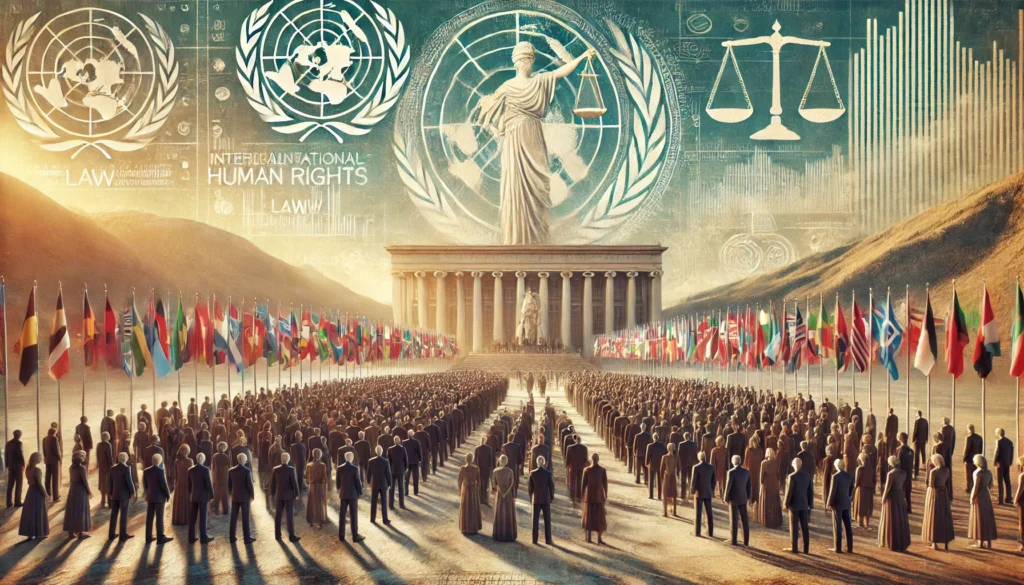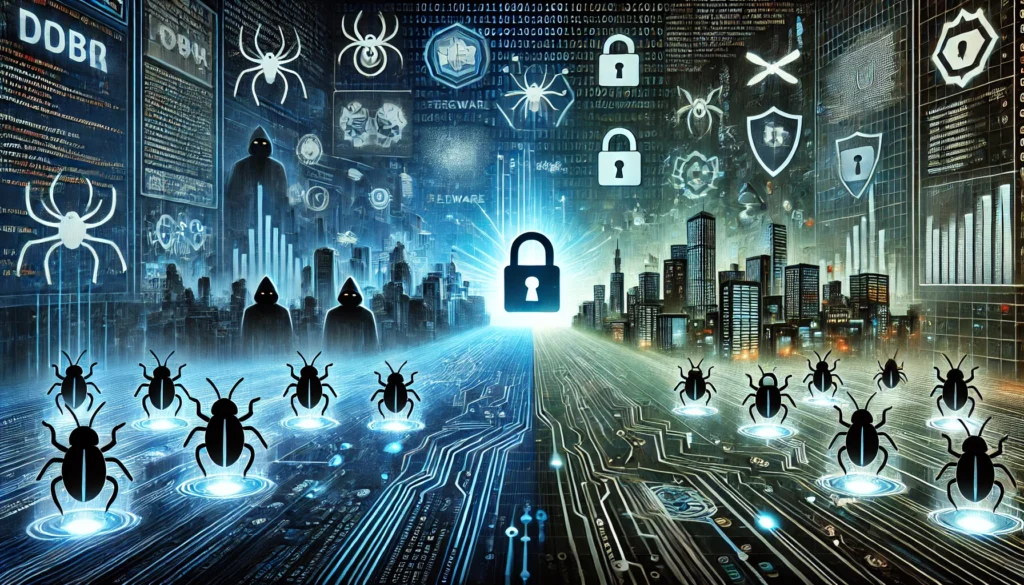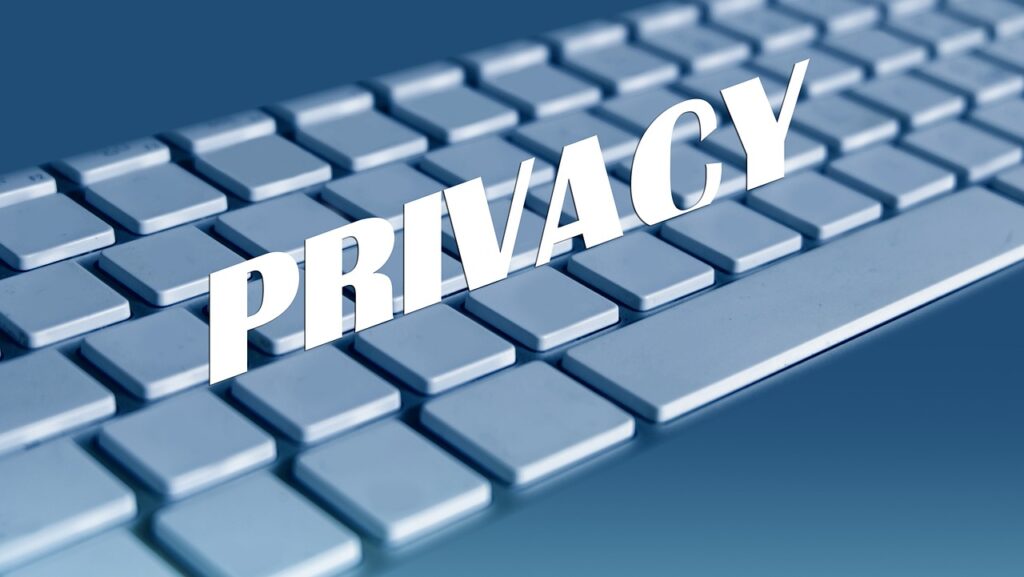Published on 26th August 2025
Authored By: Kashvi Chawla
Maharaja Agrasen Institute of Management Studies, IP University
“Right to Privacy is really important. You pull that brick out and another and pretty soon the house falls.”[1]
ABSTRACT
“Man by nature is a social animal”[2]. Individuals share specific information with others and conceal some information that they don’t want to share. They can decide that what information is to be kept undisclosed and what is to be circulated to the public. Privacy is a crucial right for every individual as it is directly connected with an individual’s freedom and liberty. When we talk about Privacy it is necessary to understand that why Right to Privacy is a fundamental right and what were the reasons behind including it in fundamental rights. It is also important to study the background of this right and the provisions provided in the Constitution of India[3] along with the reasonable restrictions. At last, it is necessary to study the landmark judgments discussing Right to Privacy.
INTRODUCTION
Privacy basically means to have command on one’s own information and activities without any unwarranted interference from any person. The Universal Declaration of Human Rights supports the fact that every person should get Right to Privacy and along with this they will also have Right to Protection of this Law if anyone without a reason interferes in the activities of other person. Right to Privacy includes saving a person from publics involvement in activities, sharing private information, exposing personal life, spreading wrong information etc. In today’s world everyone’s life is an open book. The cases of invasion of privacy were surging on daily basis so it was important to take an action for protection of privacy. The offenders make use of microphones to record conversation, they capture videos by setting up hidden cameras. Sometimes these people leak private pictures of the person they target and tarnish their image. Criminals can also steal medical records, some other classified information by entering in the system of the concerned authorities. Earlier Right to Privacy was an important Natural Right but gradually it was given more recognition and was included in Article 21 of Constitution of India as a fundamental Right. Every person should have the right to live a life full of peace without any harassment or surveillance. Anyone can seek protection if their Right to Privacy has been breached. What makes this right important is the fact that lots of activities of individuals can get effected due to its breach. If this right is protected a person can communicate freely, carry out activities with a free mind, use social media without any tension. When we talk about privacy it is essential to discuss about two main types.
PRIVACY OF DATA
This includes that the private data of an individual will not be shared without consent. Each and every information that is classified will not be shared at public platforms. If anyone shares any sorts of pictures, false information or any other personal information it would be a breach of privacy.
PRIVACY OF PERSONAL TERRITORY
Individuals have complete rights to control their own territory and be free from any sought of monitoring, restrictions or sudden searches by authorities. A person has rights to protect privacy incase of any unnecessary interference.
Indian Courts passed various landmark judgments to correctly interpret Article 21 along with Right to Privacy. But the harsh reality is that even though the Constitution of India defines Right to Privacy, still there are people who are abused and oppressed and don’t take any action because they are not aware of this right and this shows us that there is lack of knowledge regarding this right[4]. Citizens should be made aware that they can take actions when their rights are being infringed.
A crime committed on a person is violation of Right to Privacy whether it’s a crime causing physical harm including assault, domestic violence, murder or it’s a crime using technology like stalking, hacking results in violation of privacy. So, Right to Privacy is an important Human Right that needs to be safeguarded so that every citizen can live a dignified life.
EVOLUTION OF RIGHT TO PRIVACY IN INDIA
Right to Privacy has been a debatable topic in India since a long time. Right to Life is considered to be one of the most crucial rights mentioned in the Constitution of India. Right to Life is granted to all citizens and its scope keep on expanding with time. The Constitution of India ensures that every citizen is provided the liberty of thought, faith, practice their own belief etc. Article 21 of The Indian Constitution talks about the “personal liberty” of citizens and this highlighted that citizens should lead a dignified life and in order to fulfill this it is necessary that Right to Privacy has legal provisions attached to it. The discussion regarding the protection of privacy was carried out through the landmark cases brought before the court. Some of these landmark judgments are discussed below.
KHARAK SINGH vs THE STATE OF UTTAR PRADESH[5]
Facts of the Case
Kharak Singh lived in Uttar Pradesh. He was once brought before the court for being part of a robbery but was later released as there was no evidence proving the offence. The U.P. Police was not ready to believe the decision that he is innocent. Following the provisions stated in U.P. Police Regulations, they got full authority to monitor people whose names were written down in the “history sheet” of the police. This included the people who were or could become habitual offenders. The Surveillance included in regulation gave police the permission to carry out activities like secret picketing of the house, keeping a watch on all the movements etc[6]. The main issue discussed was that whether this surveillance amounted to breach of freedom of movement given to all citizens. This case also played an important role in providing definition of “personal liberty” mentioned in Article 21 of Constitution of India.
Judgment of the Case
This case was decided by the bench that included 6 Judges. The Judges after studying all the facts, decided that the regulation taking about surveillance is unconstitutional as it is violating the provisions of the Constitution of India. Furthermore, it was decided that monitoring the house is not a matter of concern and is not violating the right to move freely as the visitors will have no idea that the authorities are watching the house. Justice Ayyangar shared his opinion and clarified that unannounced visits would be a violation of living life with dignity which comes under Right to Life given by the Constitution of India to all its citizens. Justice Shah and Justice Subba Rao gave their opinion that monitoring the house is not resulting in violating so only the provision of sudden visits were removed from the rules. Justice Subba Rao believed that Right to Privacy should be included in Fundamental Rights. He also added that breaching the privacy will result in suppression of thoughts and this would lead to violation of Right to Freedom of Expression given under Article 19(1)(a) of Constitution of India. So, he finalized by stating that the regulations were not abiding by the Fundamental Rights and declared them as unconstitutional.
JUSTICE K.S. PUTTASWAMY (Retd.) & Anr. vs UNION OF INDIA & Ors.[7]
Facts of the Case
This case was brought before the court due to a petition filed by Justice K.S. Puttaswamy who was a retired judge. This petition was in relation to the Aadhaar Project looked after by Unique Identification Authority of India. This project was connected with many different schemes that aimed at improving services and putting aside all the false beneficiaries. This petition challenged the constitutional validity of Aadhar Scheme. Along with this there were many other petitions that discussed the same issue. In 2015, an issue was raised that Right to Privacy was getting violated due to the demographic biometric data collection carried out by the government. This was raised before a three Judge Bench. The Judges referred to the Supreme Court decisions that protected the Right to Privacy of citizens. Different Judgments passes by the Supreme Court was referred. The two Judgments that were widely discussed were M.P. Sharma & Ors. Vs Satish Chandra & Ors.[8] and Kharak Singh vs The State of Uttar Pradesh[9]. This case was passed on to a Constitutional Bench that thoroughly analyzed both the above-mentioned cases and made necessary changes. The issue raised in the court in this case was that, is Right to Privacy a part of Fundamental Right mentioned under the Part 3 of Constitution of India. The Judgment of this case was finally delivered on 18th July 2017 and all the necessary issues were discussed by a bench consisting of nine Judges.
Judgment of the Case
The Supreme Court of India declared Right to Privacy as a Fundamental Right under Article 21 of Constitution of India. This decision gave a new interpretation of this right. It was explained that this right included the mind as well as the body, covering all the thoughts, decisions, beliefs and freedom. The Kharak Singh judgment was overruled by the court as it denied Right to Privacy as a Fundamental Right. The M.P. Sharma judgment was discussed and it was held that, it was correct that Constitution imposed no limit on the laws regarding search and seizure. The court highlighted the fact that if there are no laws regarding privacy that doesn’t means that there is no importance of Right to Privacy in the Constitution. So, due to this the M.P. Sharma judgment was overruled. In the Kharak Singh case, the court also observed that there was no valid legal point apart from privacy to remove the provision of surveillance by police. The court decided that the principles decided in this case will be referred to matters arising in the future related to Right to Privacy. It was decided that Right to Privacy will be included in the Fundamental Rights and it will have a link with Article 14, Article 19 and Article 21 of constitution. The court presented three aspects that would be covered under Right to Privacy; physical intrusion, data privacy and protection, privacy related to the choice. The court clarified that privacy is a natural right so it cannot be alienated. This judgment brought up proportionality test in order have a fair and just decision in such cases. The Aadhar Act was regarded as a threat to the freedom of citizens. The state can restrict this freedom only when the action is legally valid, it legally fulfills purpose of the state and the action should be for the benefit of the society.
RIGHT TO PRIVACY AFTER PUTTASWAMY CASE
The case Justice K.S. Puttaswamy (Retd.) & Anr. vs Union of India & Ors. is considered to be one of the most crucial case for Right to Privacy. After the Judgment of this case many changes were made and many provisions were introduced related to privacy.
Protection of Data gained importance as a greater number of companies began to focus on building policies that will keep the data of the company safe and the markets would not have to suffer due to invasion of privacy because if we think it as a social value, we will be able to control the data as well as the surveillance by the state on markets[10].
The government formed a committee that consisted of experts that looked after data protection. This committee was supervised by Justice B.N. Shrikrishna. The report submitted by them suggested ways to protect data and how to manage personal data.
The Ministry of Home Affairs gave responsibility to authorities to check the information that already exist or is recently shared in any computer. This was done to protect the country from breach of privacy.
The Ministry of Information Broadcasting advised to monitor all social media platform in order to avoid any privacy invasion. Similar kind of surveillance project was suggested by UIDAI and it is in discussion stage before the supreme court.
This judgment also opened paths to protect the privacy of women and ensure that their rights are not being violated because earlier women rights were not fully recognized and most of the people showed no concern for protection of their privacy.
It was discussed that Right to Privacy also includes Right to Health and protection from certain health problems or any sort of trouble is important. It was further discussed that could the treatment of problems like HIV/AIDS, Tuberculosis be done without Aadhar Card.
So, this case and the judgment of this case helped to bring a lot of changes and to introduce new developments that are beneficial for the society as a whole. This indicated the importance Right to Privacy hold and it should be ensured that no citizens are deprived from this right.
The cases that were brought before the court were dealt giving importance to the Right to Privacy. One of such cases is discussed below.
PEOPLE’S UNION FOR CIVIL LIBERTIES vs UNION OF INDIA[11]
In this case the provisions of Telegraph Act were discussed. The issue was regarding the phone tapping of the politicians and this presented by a report of CBI. The Supreme Court in this case believed that individuals can conveniently have a conservation using telephone without any interference. Tapping their phone will definitely amount to violation of Right to Privacy. The court clarified that such act could only be done if it is permitted by the law.
CONCLUSION
Privacy was not really discussed initially in the India. It was not given the kind of importance it deserved. Gradually when people started to feel that due to activities of other people they are getting disturbed then they realized that that how important privacy is. Then this right that was already a natural started to become the topic for discussion. Citizens began filing cases to ask to protection and court dealt with many cases related to violation of privacy. Justice Puttaswamy Case finally gave people what they wanted. Right to Privacy became a Fundamental Right discussed in Article 21 of the Indian Constitution. This was the most important case. Furthermore, the government also played a role by bringing some necessary changes and protecting the rights of people. So, privacy is really important in each an every individual’s life and one should make sure that he/she is not the reasons for violating a person’s privacy.
REFERENCES
[1] Apple CEO Tim Cook on FBI, Security, Privacy: Transcript https://time.com/4261796/tim-cook-transcript/ March 17, 2016
[2] Man as a social animal https://www.thehindu.com/features/education/research/man-as-socialanimal/article2988145.ece March 12, 2012
[3] Constitution of India
[4]RIGHT TO PRIVACY: AN INDIAN CONTEXT https://timesofindia.indiatimes.com/readersblog/the-daily-roam/right-to-privacy-an- indiancontext-55047/ June 11, 2023
[5] (1963) AIR 1295 1964 SCR (1) 332
[6] Vijaya Narain Shukla and Mahendra Pal Singh, V.N. Shukla’s Constitution of India (2013).
[7] (2017) 10 SCC 1, AIR 2017 SC 4161
[8] (1954) 1 SCR 1077
[9] (1963) AIR 1295 1964 SCR (1) 332
[10]Data Protection as a Social Value https://www.epw.in/journal/2017/51/privacy-after-puttaswamy-judgment/data-protectionsocial-value.html December 27, 2017
[11] AIR 1997 SC 568, (1997) 1 SCC 301



